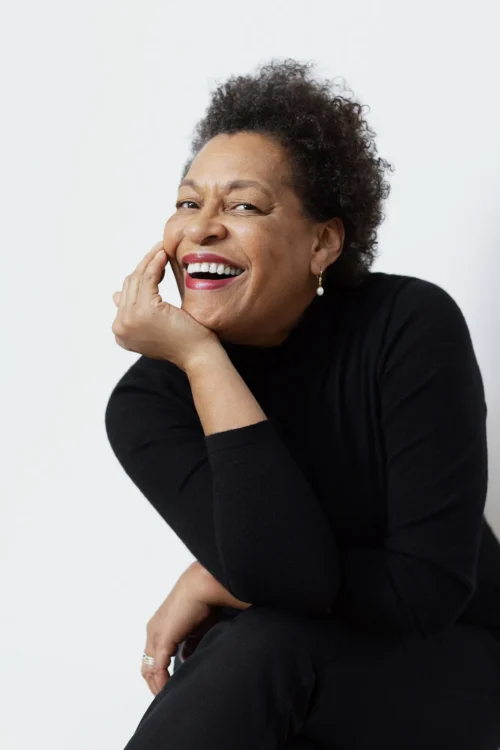Carrie Mae Weems Awarded 2024 National Medal of Arts
Share
Explore Our Galleries
Breaking News!
Today's news and culture by Black and other reporters in the Black and mainstream media.
Ways to Support ABHM?
By News Desk, Artforum
Artist and photographer Carrie Mae Weems on October 21 was named as the winner of a National Medal of Arts. She is the first Black female visual artist to receive the prestigious honor.

Artist and photographer Carrie Mae Weems on October 21 was named as the winner of a National Medal of Arts. She is the first Black female visual artist to receive the prestigious honor, which has been presented annually since 1984 by the sitting US president to an artist or patron of the arts who is “deserving of special recognition by reason of their outstanding contributions to the excellence, growth, support and availability of the arts in the United States.” Weems through a practice spanning four decades and encompassing installation, film, performance, and photography explores themes related to politics, feminism, and African American identity, in works that variously center personal experience and historical archives.
Born in Portland, Oregon, in 1953, Weems began her career studying dance in San Francisco with Anna Halprin before obtaining her BFA from the California Institute of the Arts and her MFA from the University of California, San Diego. She gained prominence in the early 1990s with her pioneering “Kitchen Table Series,” which portrays Weems herself, sitting before the titular piece of furniture while various other subjects come and go, exhibiting and evoking a range of attitudes as they variously perform different actions, such as smoking, drinking, playing cards, and applying makeup. In series such as “From Here I Saw What Happened and I Cried,” 1995–96, and “The Hampton Project,” 2000, Weems investigated the impact of racism on photography and on the emotional lives of previously overlooked historical subjects by placing photographs she found in the archives of museums and universities in conversation with her own images. Her works All the Boys, 2016, and Remember Me, 2019, respectively investigate the killing of young Black men and their disproportionate incarceration.
“As the first African American female visual artist to receive the National Medal of Arts in recognition for my contributions is profoundly humbling and a great honor,” said Weems in a statement. “I thank my colleagues, along with the many other great women artists of color who came before me, widened the path and took the heat, but unfortunately were not recognized for their tremendous achievements.”
Weems’s solo exhibition “The Shape of Things,” is on view through November 9 at Gladstone Gallery, New York.
Read the article here.
Get to know more Black artists in this exhibit on June Jordan, a Black poet, activist and writer.









Comments Are Welcome
Note: We moderate submissions in order to create a space for meaningful dialogue, a space where museum visitors – adults and youth –– can exchange informed, thoughtful, and relevant comments that add value to our exhibits.
Racial slurs, personal attacks, obscenity, profanity, and SHOUTING do not meet the above standard. Such comments are posted in the exhibit Hateful Speech. Commercial promotions, impersonations, and incoherent comments likewise fail to meet our goals, so will not be posted. Submissions longer than 120 words will be shortened.
See our full Comments Policy here.